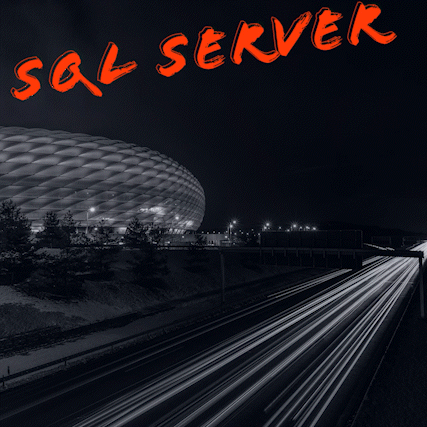Wait statistics, in the context of SQL Server, refer to the amount of time that a query spends waiting to access data in the database. When a client application requests data from the database, the request is placed in a queue and the client application must wait for its turn to access the data. The time that the query spends waiting is called a "wait" and is tracked by SQL Server. This information can be used to identify potential performance bottlenecks and optimize the performance of the database. Wait statistics are commonly used by database administrators to diagnose and troubleshoot performance issues in SQL Server.
SQL Server uses wait types to provide insights into where delays may occur in processing tasks. The HADR_CONNECTIVITY_INFO wait type is specific to Always On Availability Groups. It appears when SQL Server is waiting for connectivity-related information between replicas in the Availability Group. Understanding this wait type is key to maintaining efficient synchronization and failover readiness in high availability environments.
What Is the HADR_CONNECTIVITY_INFO Wait Type?
The HADR_CONNECTIVITY_INFO wait type indicates that SQL Server is waiting for connectivity updates related to the Always On infrastructure. This may involve retrieving or refreshing information about how replicas communicate, including their states and network connections. This wait type ensures that the primary and secondary replicas maintain a consistent understanding of their roles and statuses.
When Does HADR_CONNECTIVITY_INFO Appear?
This wait type typically occurs in the following scenarios:
- Cluster Health Checks When SQL Server checks the connectivity between replicas to ensure synchronization and availability.
- Role Changes During failover or role-switching operations in the Availability Group.
- High Network Activity In environments with frequent changes in connectivity or high Always On workloads.
- Replica Addition When new replicas are added to an Availability Group and connectivity information is refreshed.
Why HADR_CONNECTIVITY_INFO Waits Matter
Although some HADR_CONNECTIVITY_INFO waits are normal in Always On environments, frequent or prolonged waits can signal potential issues that may impact availability and performance. Common causes include:
- Network Latency Delays in communication between replicas due to high latency or unstable connections.
- Resource Constraints Insufficient CPU or memory on replicas can slow down the processing of connectivity updates.
- High Workloads Heavy transaction or synchronization loads can increase the frequency of connectivity checks and their associated waits.
- Misconfigurations Incorrect network or cluster configurations can result in unnecessary delays.
How to Address HADR_CONNECTIVITY_INFO Waits
If this wait type is causing performance concerns, consider these strategies:
- Optimize Network Performance Ensure reliable, low-latency connections between replicas. Use dedicated network links for Always On traffic if possible.
- Monitor Replica Resource Usage Ensure that all replicas have sufficient CPU and memory to handle their roles and workloads efficiently.
- Review Availability Group Configuration Verify that the Availability Group settings, including endpoints and routing, are correctly configured.
- Distribute Workloads Balance read workloads across secondary replicas to prevent overloading the primary replica.
- Track Failovers Monitor for frequent role changes or failovers that might increase connectivity-related tasks.
Monitoring HADR_CONNECTIVITY_INFO Waits
To effectively monitor this wait type, you can use the Historic Waits Monitoring feature in Database Health Monitor. This tool helps track wait statistics over time, allowing you to identify trends and pinpoint potential connectivity bottlenecks. By monitoring waits both in real-time and historically, you can take proactive steps to improve the performance of your Always On Availability Groups.
Stedman Solutions specializes in SQL Server performance tuning and high availability optimization. If youre experiencing challenges with HADR_CONNECTIVITY_INFO waits or other performance issues, our Database Health Monitor tool offers comprehensive insights, and our managed services deliver expert support to keep your SQL Server running smoothly. Contact us today to learn how we can help enhance your SQL Server environment.

Find out more about our SQL Server Managed Services
Applies to
Related Waits
HADR_AG_MUTEXHADR_AR_CRITICAL_SECTION_ENTRY
HADR_AR_MANAGER_MUTEX
HADR_AR_UNLOAD_COMPLETED
HADR_ARCONTROLLER_NOTIFICATIONS_SUBSCRIBER_LIST
HADR_BACKUP_BULK_LOCK
HADR_BACKUP_QUEUE
HADR_CLUSAPI_CALL
HADR_COMPRESSED_CACHE_SYNC
HADR_DATABASE_FLOW_CONTROL
HADR_DATABASE_VERSIONING_STATE
HADR_DATABASE_WAIT_FOR_RESTART
HADR_DATABASE_WAIT_FOR_TRANSITION_TO_VERSIONING
HADR_DB_COMMAND
HADR_DB_OP_COMPLETION_SYNC
HADR_DB_OP_START_SYNC
HADR_DBR_SUBSCRIBER
HADR_DBR_SUBSCRIBER_FILTER_LIST
HADR_DBSEEDING
HADR_DBSEEDING_LIST
HADR_DBSTATECHANGE_SYNC
HADR_FABRIC_CALLBACK
HADR_FILESTREAM_BLOCK_FLUSH
HADR_FILESTREAM_FILE_CLOSE
HADR_FILESTREAM_FILE_REQUEST
HADR_FILESTREAM_IOMGR
HADR_FILESTREAM_MANAGER
HADR_GROUP_COMMIT
HADR_LOGCAPTURE_SYNC
HADR_LOGCAPTURE_WAIT
HADR_LOGPROGRESS_SYNC
HADR_NOTIFICATION_DEQUEUE
HADR_NOTIFICATION_WORKER_EXCLUSIVE_ACCESS
HADR_NOTIFICATION_WORKER_STARTUP_SYNC
HADR_NOTIFICATION_WORKER_TERMINATION_SYNC
HADR_PARTNER_SYNC
HADR_READ_ALL_NETWORKS
HADR_RECOVERY_WAIT_FOR_CONNECTION
HADR_RECOVERY_WAIT_FOR_UNDO
HADR_REPLICAINFO_SYNC
HADR_SYNC_COMMIT
HADR_SYNCHRONIZING_THROTTLE
HADR_TDS_LISTENER_SYNC
HADR_TDS_LISTENER_SYNC_PROCESSING
HADR_TIMER_TASK
HADR_TRANSPORT_DBRLIST
HADR_TRANSPORT_FLOW_CONTROL
HADR_TRANSPORT_SESSION
HADR_WORK_POOL
HADR_WORK_QUEUE
HADR_XRF_STACK_ACCESS
See Also
All Wait Types


